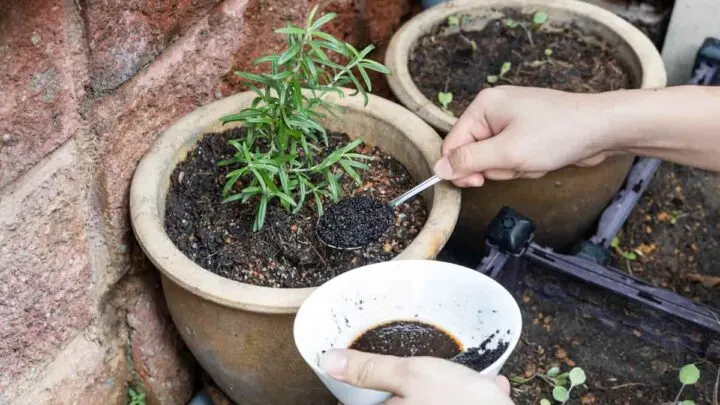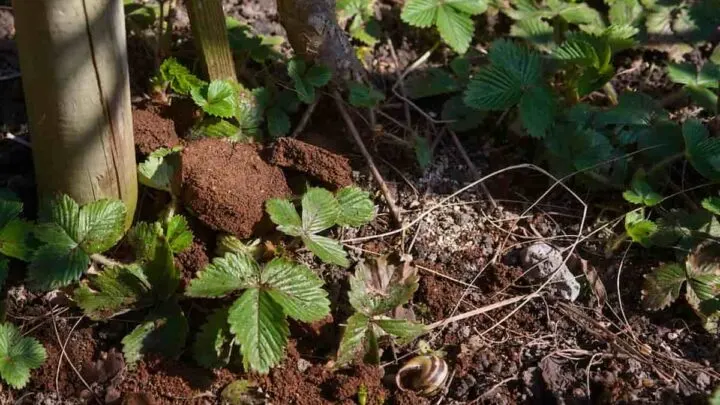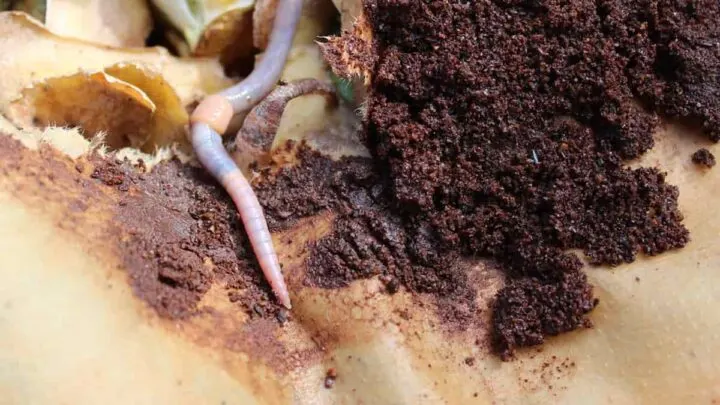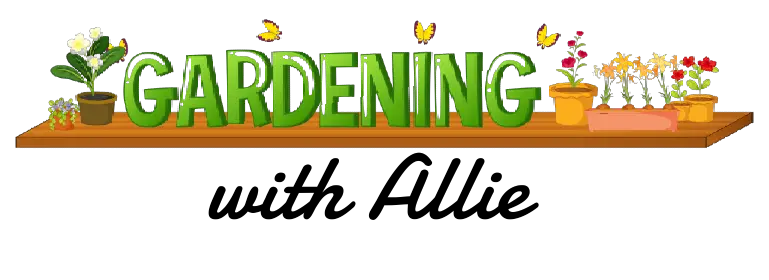The smell of coffee awakens our senses and helps most of us function. Who knew that plants too thrive with a bit of caffeine? If you’ve heard about coffee grounds and their ability to liven up the soil, you might be surprised to learn that not all plants approve. So, which plants do not like coffee grounds?
A few plants do not like coffee grounds, primarily because of their high acidity. Plants like lavender, lilies, lilacs, and poppies do not like coffee grounds. It’s essential to consider which plants are in your garden and your soil’s acidity before adding coffee grounds.
Using coffee grounds that have already been brewed is a great way to repel bugs, fertilize soils, and aerate the soil. Fresh coffee grounds have similar functions, though they are much more intense and have higher acidity.
What exactly do coffee grounds do for your garden, and how can you use them safely with your plants? We’ll provide answers to that and more below.

Why Coffee Grounds in Gardens?
Using coffee grounds in gardens is nothing new. However, some gardeners do it without knowing the benefits of used and fresh coffee grounds. A few of the most notable uses for coffee grounds include fertilizer, mulch, repellent, and worm food.
Coffee Grounds As Fertilizer
Coffee grounds work wonders as a fertilizer, acting as organic matter. Organic matter increases soil’s ability to retain water, keeping it moist. Additionally, organic matter works to loosen and aerate soils, preventing too much water retention that could lead to root rot.
One key component of well-rounded soils is nitrogen, which coffee grounds help to add. It is not something immediate; taking some time for soils to obtain the nitrogen within. Besides the components that diversify soils, adding a few coffee grounds also helps to attract earthworms, keeping soils rich with moisture and nutrients that earthworms love.

Coffee Grounds As Mulch
Mulch is another addition to gardens that works to retain moisture and when it’s hot and warm when it’s cold. The protection that comes with mulch helps to keep gardens healthy. Coffee grounds act as mulch, helping to blanket the top layer of soil to keep it warm and hold moisture in when temperatures get too hot.
Coffee Grounds As Repellent
Coffee grounds also work as a form of protection against pests. Pesky slugs and snails can feed on plants, destroying gardens if they are left unmanaged. Cats are another garden predator, using the space as a litter box and throwing off the acidity. Using coffee grounds works to keep things like slugs, snails, and cats away, releasing an odor that they try to stay away from.

Coffee Grounds As Worm Food
Worms are great for soil, acting as decomposers of organic matter. Their presence in the soil helps to aerate it, add structure, and recycle nutrients, converting them into those usable by plants. Worms love the smell and taste of coffee grounds, flocking to soils rich in both fresh and brewed grounds.
Can I Put Coffee Grounds On All My Plants?
Coffee grounds provide several benefits to soils, though it’s not the same for plants. Some plants don’t like coffee grounds, unable to flourish and grow in the presence of high acid. Besides alkaline-loving plants, it’s also recommended to keep coffee grounds from seedlings. The caffeine can damage roots, and if grounds are too thick in soils, roots can miss out on the sunshine and moisture needed to root and grow.
What Flowers Do Not Like Coffee Grounds?
Acid-loving plants like blueberries and azaleas do well with fresh coffee grounds, but there is a long list of flowers and plants that do not like fresh coffee grounds. A few notable garden staples that aren’t fond of fresh coffee ground include:
- Geranium
- Chinese mustard
- Orchids
- Tomatoes
- Rosemary
The acidity of brewed coffee grounds decreases, and they can be used with almost any plant. However, it’s essential not to overdo it, maybe adding a little once a month to start with to see how your garden does. You can increase or decrease depending on how your plants react.

How To Use Coffee Grounds In Your Garden
Every gardener seems to have a method for adding coffee grounds to their garden. From making a brew to direct application, you can find tips and tricks for them all. If you’re new to using coffee grounds in your garden, here are a few ways (tried and tested) to try it out.
Direct Application
Works Best For: Repelling insects and animals
Do: Use sparingly (a little goes a long way)
Do Not: Use as your ONLY defense against pests
All you have to do for direct application is add coffee grounds to your garden. If you start seeing insects and animals in your garden (or evidence of them), you can sprinkle a bit around plants to keep them away. If the problem persists, you may need to treat it with an insecticide to prevent plant death.
Just Add Water
Reusing brewed coffee grounds is simple with this method. You must mix one tablespoon in one cup of water and let the mixture sit overnight. In the morning, strain the grounds to reduce the grainy consistency, and then add the water to your garden. It’s simple, universally plant friendly, and can transform soil fast.
Start A Compost Pile
A compost pile is every gardener’s secret weapon. Using a bit when plants need it the most can boost soil nutrient contents, moisture levels, and overall structure.
Work in coffee grounds to further aerate if you have an existing compost pile. If you don’t have one yet, start one! Mix a 2:1 ratio of leaves, twigs, and clippings to things like coffee grounds or food scraps. Let it sit for a few months and keep it growing to access it when your garden needs an extra boost.
Final Thoughts
Coffee grounds are a great addition to any garden, adding several benefits to soils. Before using them, consider the plants you have in your garden and only use brewed coffee grounds for alkaline plants. Put your coffee grounds to work in your garden, getting double use out of your caffeine fix for the day.

Hi there, my name is Allie and welcome to my blog; GareningWithAllie!
Much of what you see written here is just our personal experiences with gardening. Along with the content I write here, there is also a unique collection of gardening topics covered by some of our close friends. I hope you find everything you read here to be helpful, informative, and something that can make your gardening journey the most lovely experience ever! With that said, Happy Gardening!
